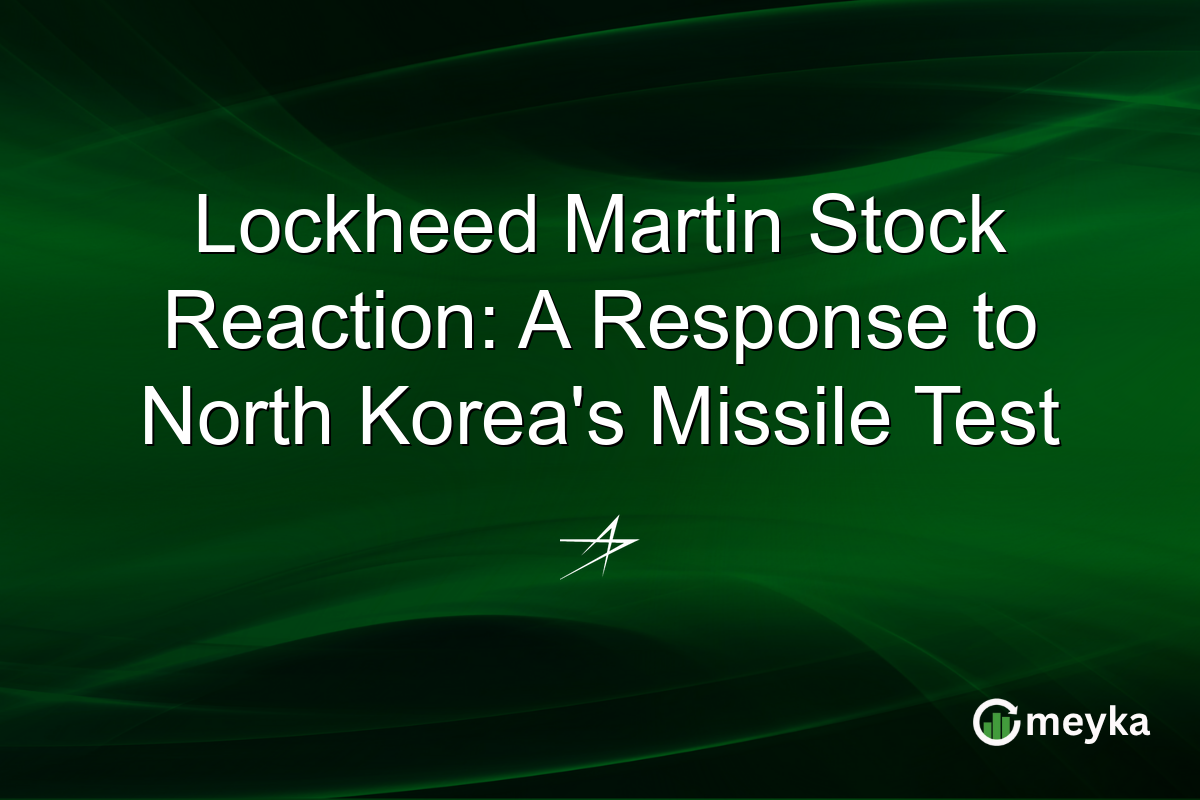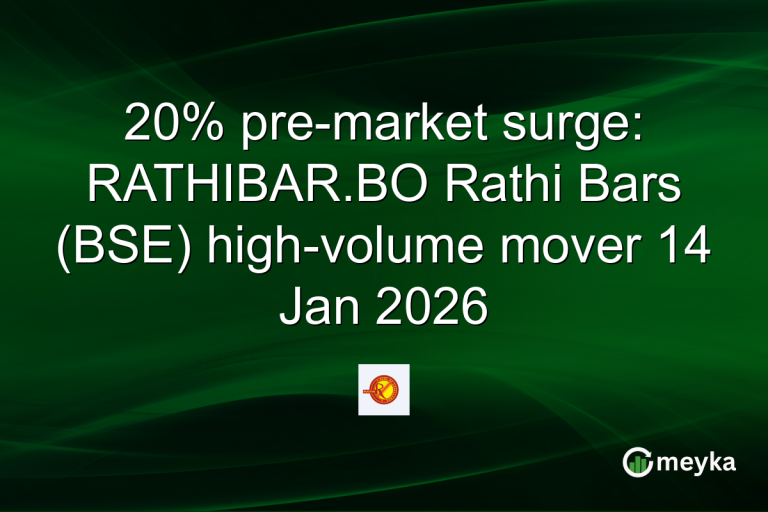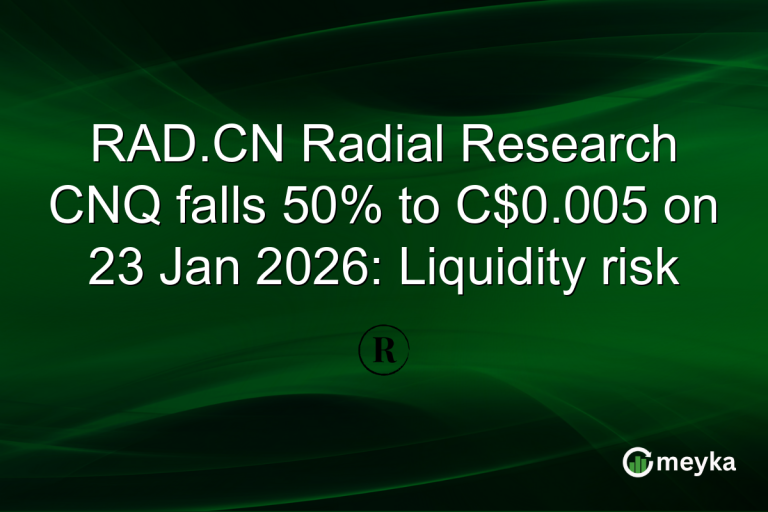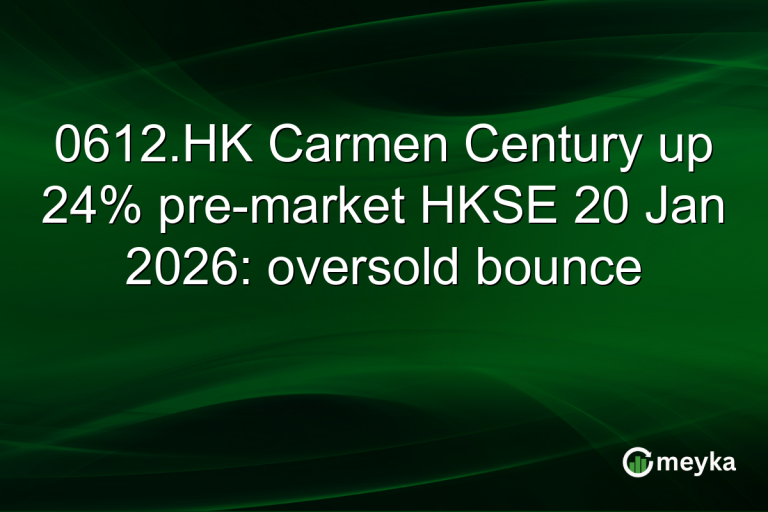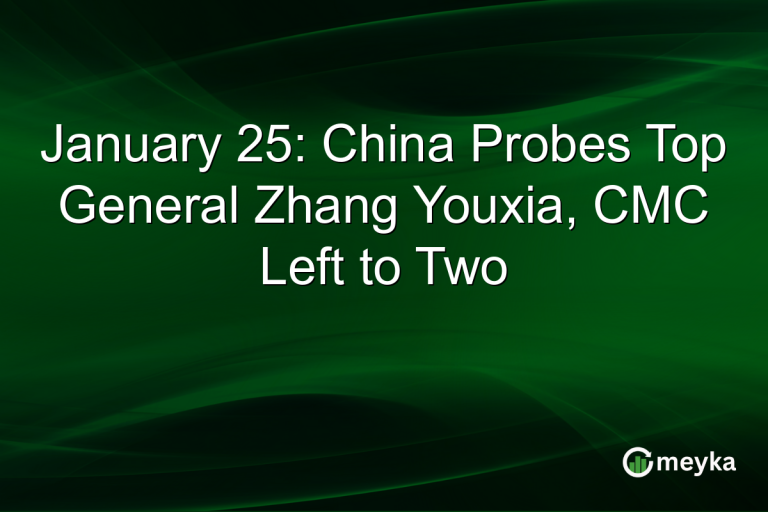Lockheed Martin Stock Reaction: A Response to North Korea’s Missile Test
Lockheed Martin, a key player in the defense sector, saw its stock dip by 0.53% after North Korea’s latest missile test. The introduction of the Hwasong-20 ICBM has sparked global attention, causing shifts in stock market dynamics, particularly for companies like Lockheed Martin that are directly tied to defense and aerospace industries. We explore how this event influenced market reactions and ponder its broader implications.
Impact of North Korea’s Missile Test
The recent test of North Korea’s Hwasong-20 intercontinental ballistic missile has intensified geopolitical tensions. This event caused investors to reassess stocks in defense sectors worldwide. Even though the test signals potential shifts in global defense strategies, Lockheed Martin’s connection to missile defense systems places it at the heart of these discussions. This shift in global dynamics encourages nations to reevaluate their defense capacities, potentially benefiting companies specializing in aerospace and military technologies. Read more on Reuters. Although North Korea’s missile advancements primarily affect geopolitical strategies, they also serve as a stark reminder of the volatile nature of global security. For Lockheed Martin, this means increased attention on their missile and fire control systems, which could lead to potential sales boosts in the future.
Lockheed Martin Stock Analysis
Lockheed Martin’s stock closed at $505.05, seeing a drop of $2.71 following the test announcement. This change reflects broader market uncertainties, given the current geopolitical climate. With a PE ratio of 28.3 and a dividend yield of 2.6%, the stock remains a subject of interest among investors. Despite the short-term dip, the stock’s performance over the last decade shows an impressive 131% increase, suggesting strong long-term potential. Investor sentiment towards aerospace and defense sectors often aligns closely with geopolitical events. Seeing how Lockheed Martin remains a cornerstone of U.S. defense capabilities, analysts continue recommending a “Hold,” reflecting a cautious but optimistic outlook. The upcoming earnings announcement on October 21st will be closely watched to gauge potential impacts on financial performance.
Future Outlook for the Defense Industry
The impact of North Korea’s missile testing extends beyond immediate stock reactions. It encourages governments to bolster defense spending, thereby influencing companies like Lockheed Martin positively. As global security concerns escalate, the demand for advanced defense systems grows, presenting new opportunities and challenges for the industry. Defense contractors are likely to see increased orders, stimulating sector growth. Lockheed Martin, with its comprehensive missile defense offerings, is poised to benefit from these global trends. This positions them well for long-term growth, despite the day-to-day market fluctuations. This shows a direct correlation between geopolitical shifts and stock market dynamics, emphasizing the importance of staying informed on global developments.
Final Thoughts
Lockheed Martin’s stock reacted modestly to North Korea’s missile test, reflecting typical market responses to geopolitical events. The impact on global defense dynamics suggests a cautious optimism for the aerospace sector, especially for companies that are integral to national security. With pressing global security challenges, Lockheed Martin’s role as a defense leader remains solid. Investors should continue monitoring global security developments and their influence on defense stock prices. Despite short-term fluctuations, the demand for advanced defense technologies offers promising prospects for the future. Thus, Lockheed Martin remains a key player to watch in this evolving sector.
FAQs
Lockheed Martin’s stock experienced a slight decline of 0.53% following North Korea’s missile test. This reaction was part of a broader market response to increased geopolitical tensions.
The missile test highlights global security challenges, leading to potential increases in defense budgets. Companies like Lockheed Martin may benefit from heightened demand for advanced defense systems.
Lockheed Martin trades at $505.05, reflecting a robust market presence with a PE ratio of 28.3. Despite short-term declines, the stock shows a strong long-term growth trajectory.
Disclaimer:
This is for information only, not financial advice. Always do your research.
